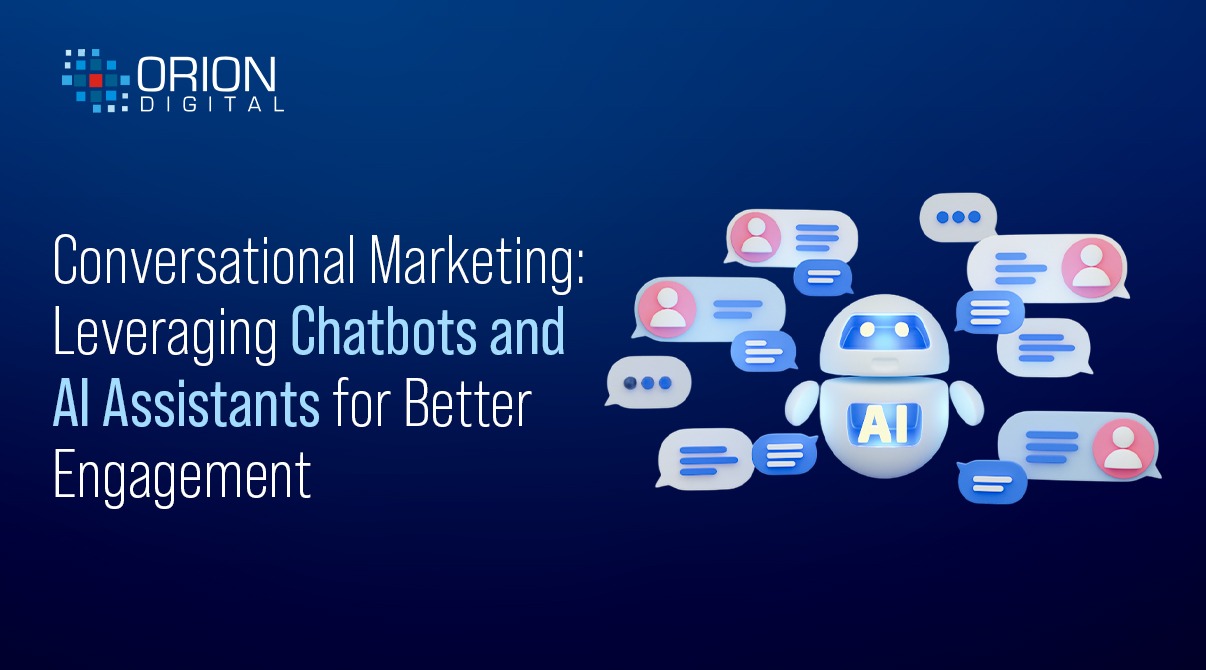
Conversational Marketing: Leveraging Chatbots and..
- Naveen N
- February 19, 2024
- Digital Marketing
- ai assistants, conversational marketing
- 0 Comments
Chatbots and AI Assistants Are Revolutionizing Conversational Marketing
Brands are constantly looking for new ways to engage and interact with their customers. One of the latest trends in marketing is conversational marketing, which utilizes chatbots and artificial intelligence (AI) assistants to enable more natural and personalized conversations.
According to research, over 50% of companies are already using or planning to use chatbots by 2020. In this blog, we will discuss how conversational interfaces like chatbots and AI assistants are transforming marketing by enabling better engagement.
Chatbots 101
A chatbot is a software application that uses rules or artificial intelligence to conduct voice or text conversations. Chatbots can be integrated into messaging apps, websites, mobile apps and other channels to interact with customers. There are two main types of chatbots:
- Rule-based chatbots rely on predefined rules and scripts to understand user inputs. They have limited conversational capabilities but can be useful for common FAQs.
- AI-powered chatbots leverage machine learning and natural language processing to understand varied customer queries. They can handle complex conversations and provide personalized responses. Popular examples include Alexa, Siri and Google Assistant.
Some key benefits of chatbots for businesses are:
- 24/7 availability to engage users at any time
- Scalability to handle large volumes of customer interactions
- Cost savings by automating repetitive tasks like order status
Overall, chatbots allow brands to provide an instant, personalized and consistent experience across touchpoints.
AI Assistants and Conversational Interfaces
While the first chatbots were rule-based, AI assistants utilize advanced technologies like deep learning and NLP to deliver human-like conversations. Some capabilities of AI assistants include:
- Natural language processing to understand context and intent
- Deep learning algorithms to keep improving from interactions
- Contextual awareness to respond based on user preferences and history
Leading technology companies like Amazon, Apple, Google and Microsoft are pioneering AI assistants like Alexa and Siri. These intelligent bots can understand natural language, leverage external data sources and complete tasks through conversations.
The goal of these AI assistants is to provide a seamless, human-like conversational interface for users. In future, conversational AI will become the primary way of interacting with technology.
Applications in Conversational Marketing
Here are some key applications of chatbots and AI assistants in conversational marketing:
Lead Generation and Qualification
- Chatbots can engage website visitors and qualify leads by asking relevant questions about needs and interests.
- Qualified leads can be transferred to sales teams for follow-up. This makes the process efficient.
Customer Service and Support
- AI assistants can resolve common customer queries related to order status, shipping, returns and more.
- This improves satisfaction by providing quick resolutions 24/7.
Personalized Recommendations
- Intelligent chatbots track customer preferences and purchase history to provide personalized product suggestions.
- This leads to higher engagement and conversions.
Appointment Booking and Conversion Optimization
- Chatbots can help customers book appointments or reservations via conversational interfaces.
- Website visitors can be proactively engaged with special offers or deals.
“Chatbots and AI provide the option for conversational marketing instead of one-way brand messaging.”
Best Practices for Implementation
Here are some tips to ensure the successful implementation of conversational marketing:
- Focus on Natural Conversations
Design the chatbot to handle common customer queries and use natural language. Avoid Using robotic responses like “I didn’t understand”.
- Omnichannel Deployment
Deploy the chatbot across your website, app, messaging platforms, email and other touchpoints.
- Integration with Backend Systems
Integrate chatbots with your CRM, commerce platform etc. to have access to customer data and handle queries.
- Regular Testing and Optimization
Continuously test chatbot interactions and user feedback to identify areas for improvement. Optimize and enhance the bot with new capabilities.
“Training the AI engine with more data will also improve performance over time.”
Conversational Interfaces Are the Future of Marketing
Chatbots and AI assistants are disrupting marketing by enabling personalized conversations that engage customers. With their AI capabilities and wide deployment, these bots are the future of conversational interfaces. Brands that embrace this technology will be able to drive better marketing results and establish deeper connections with their audience. The key is to focus on natural conversations and continuous optimization of the chatbot. With best practices for implementation, companies can leverage conversational marketing at scale to transform customer experiences.




